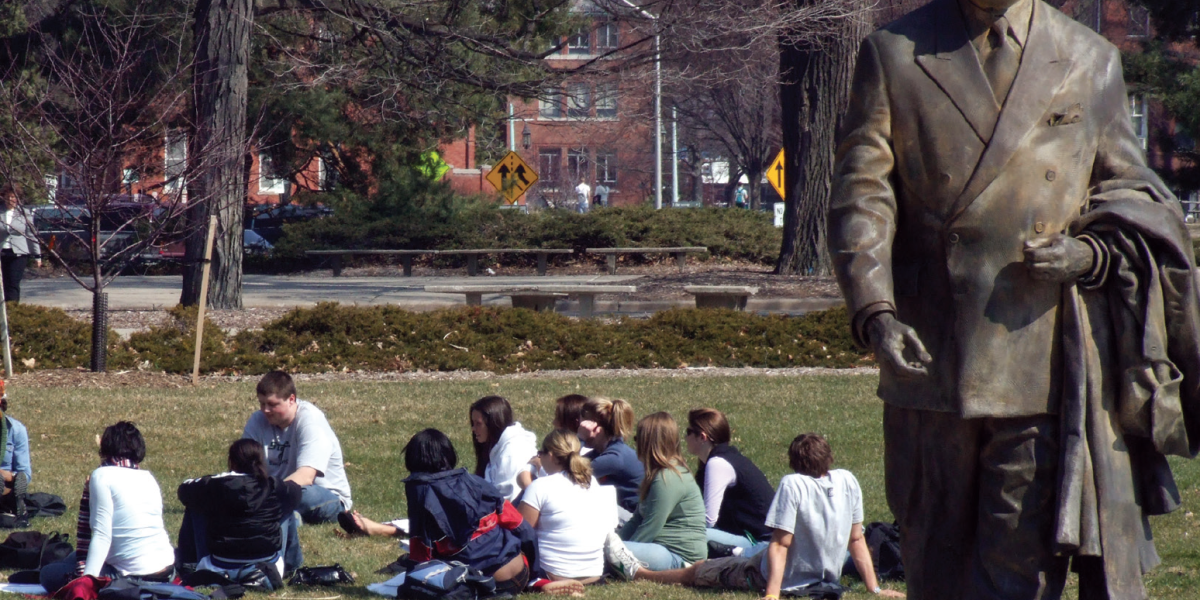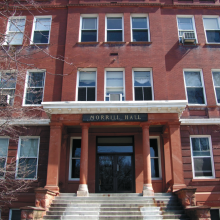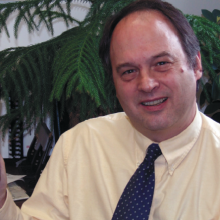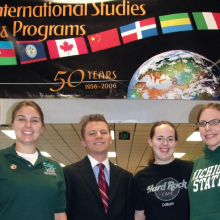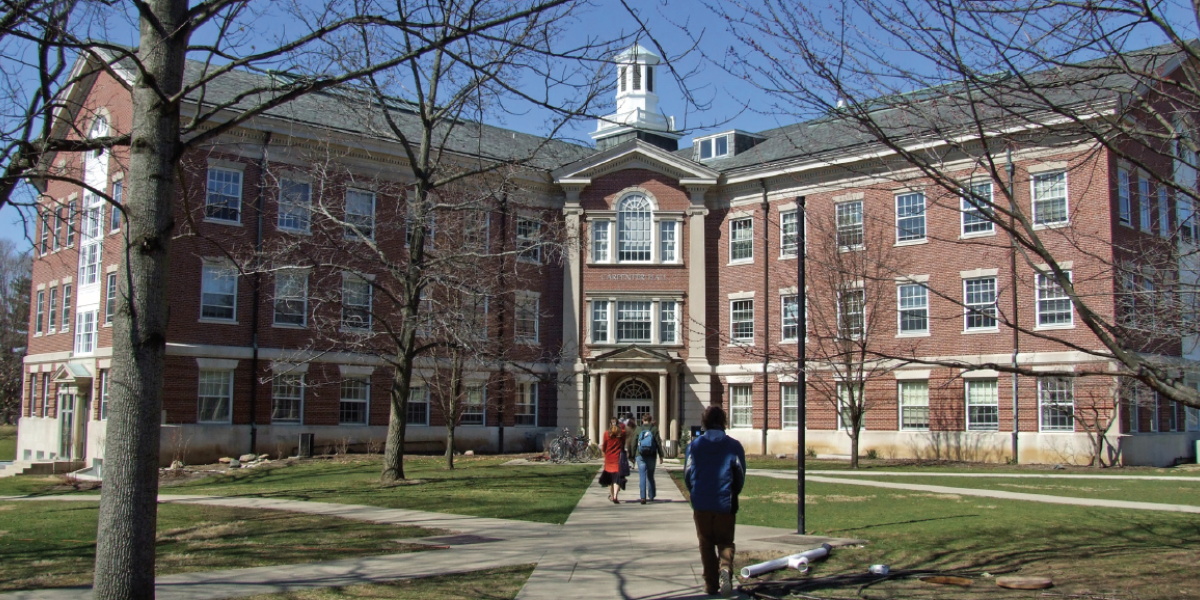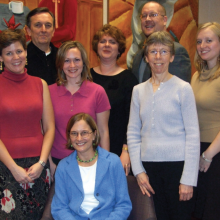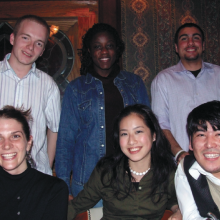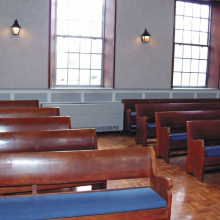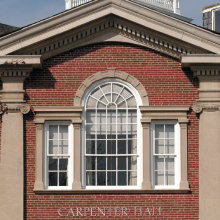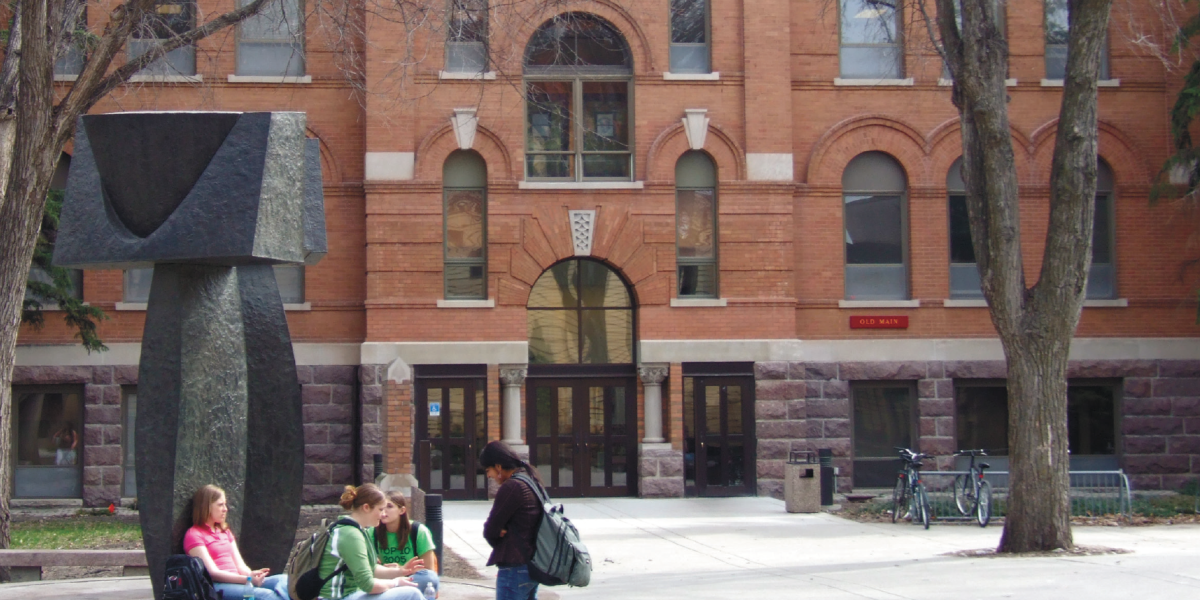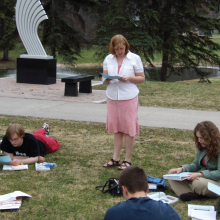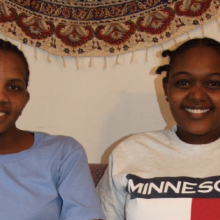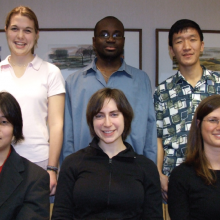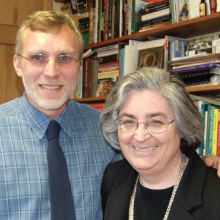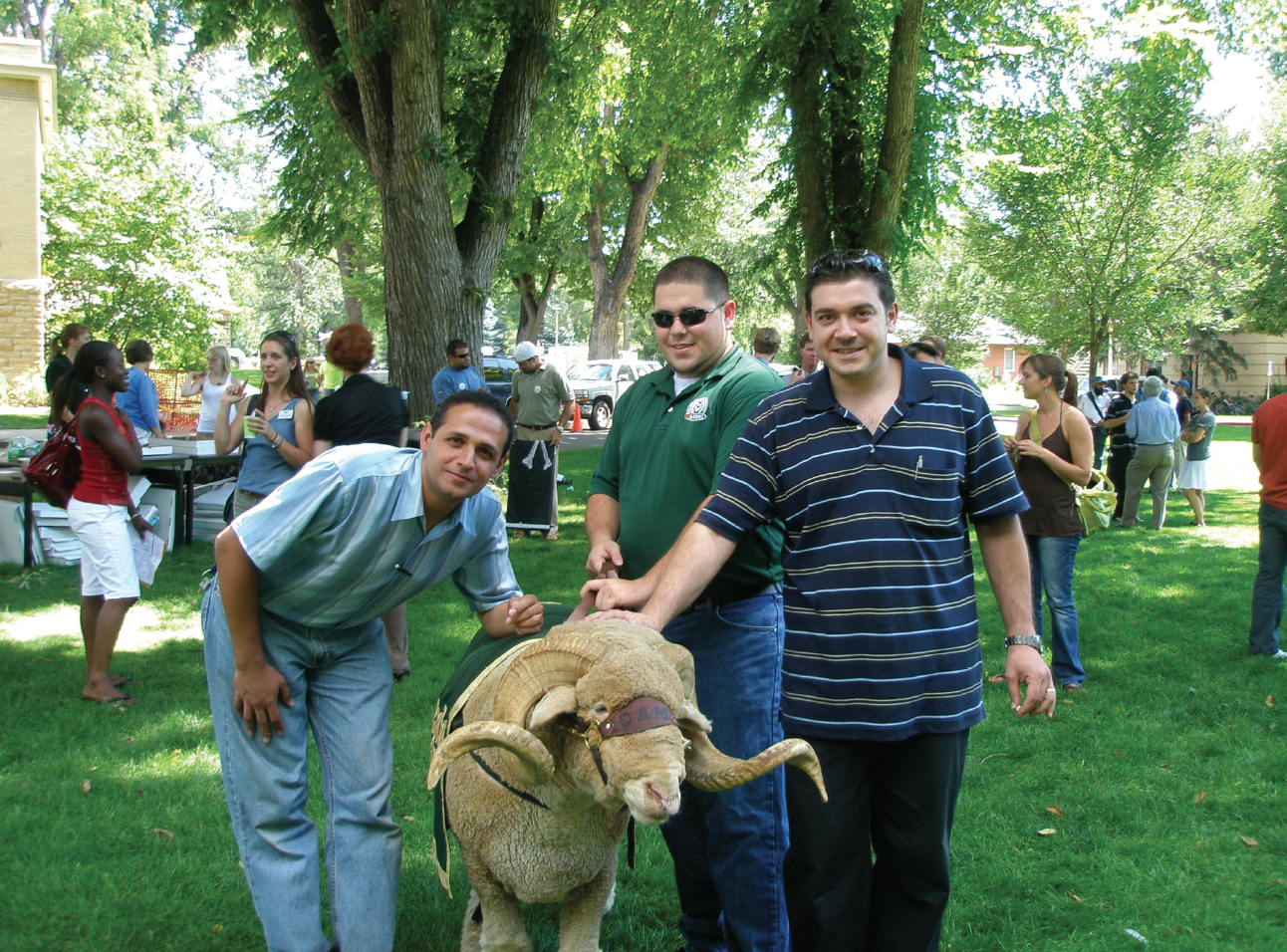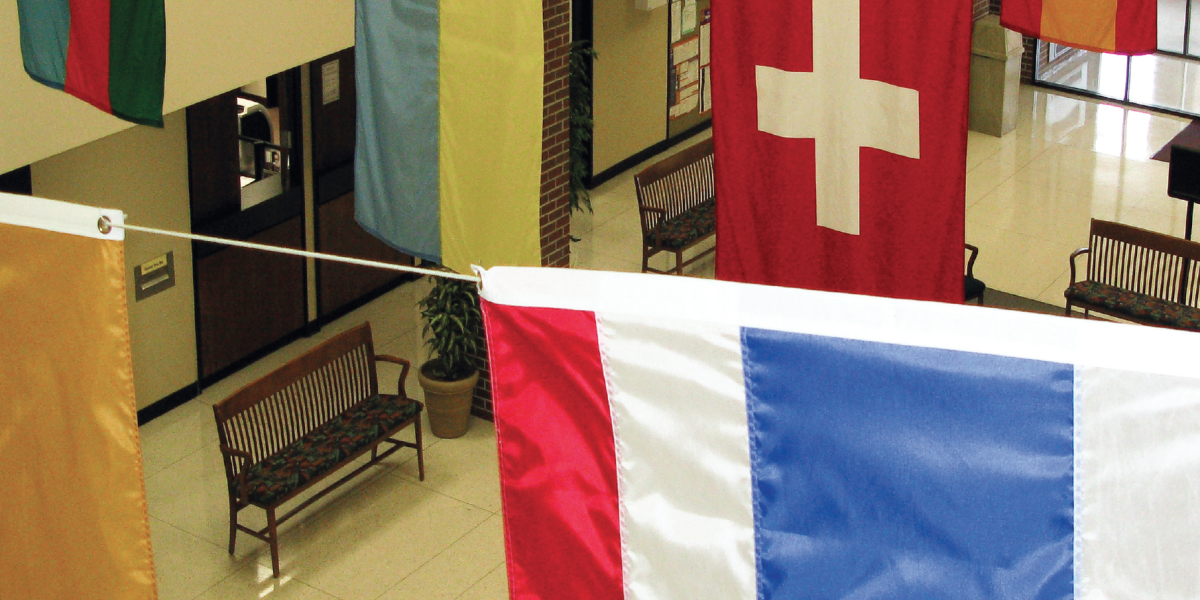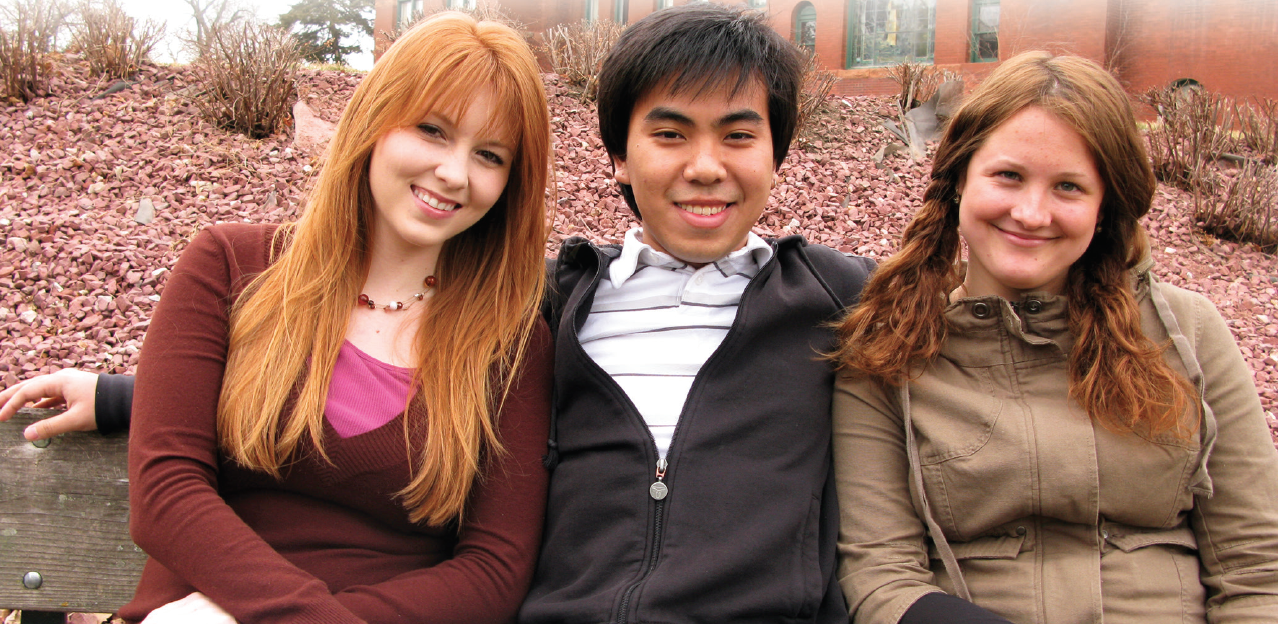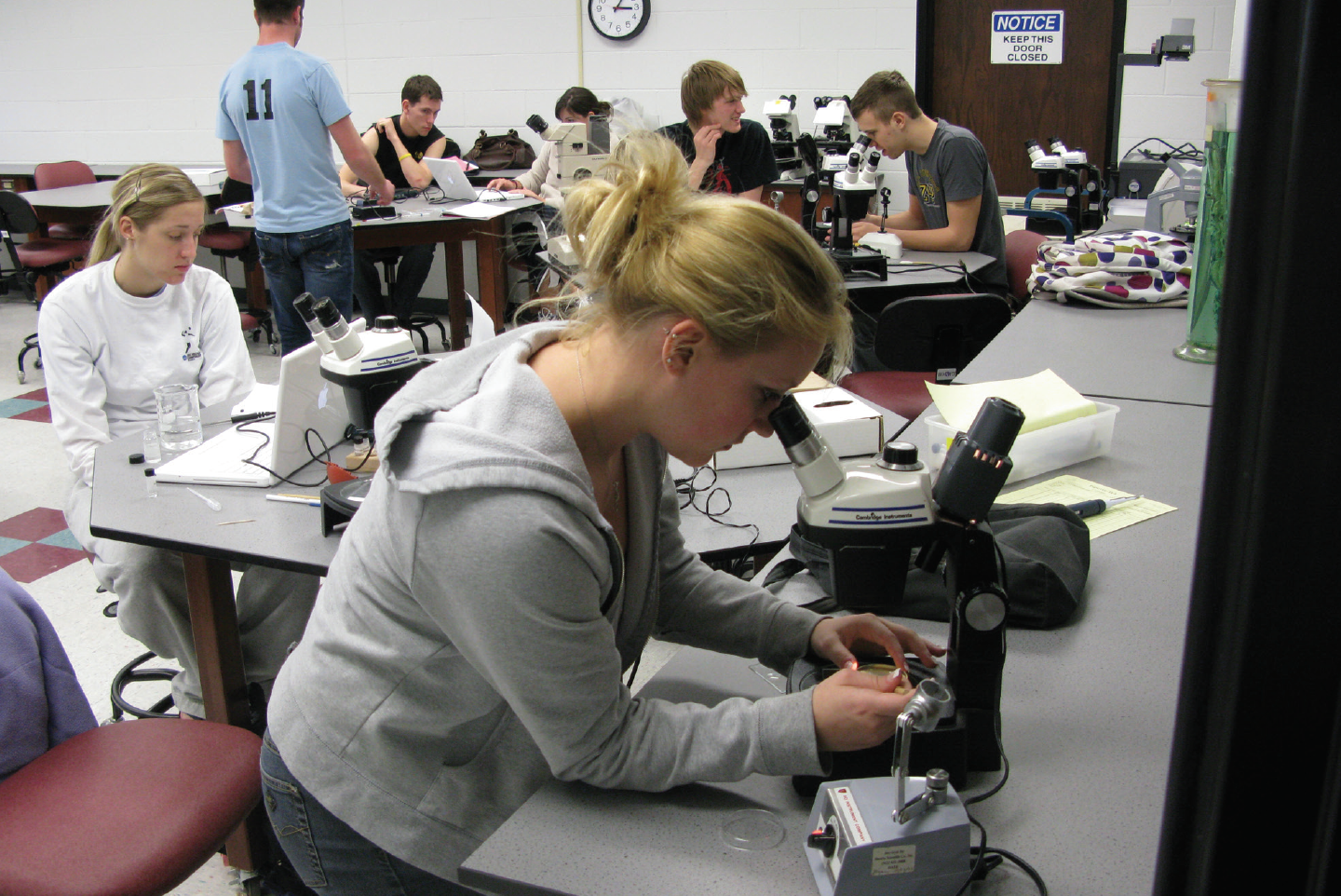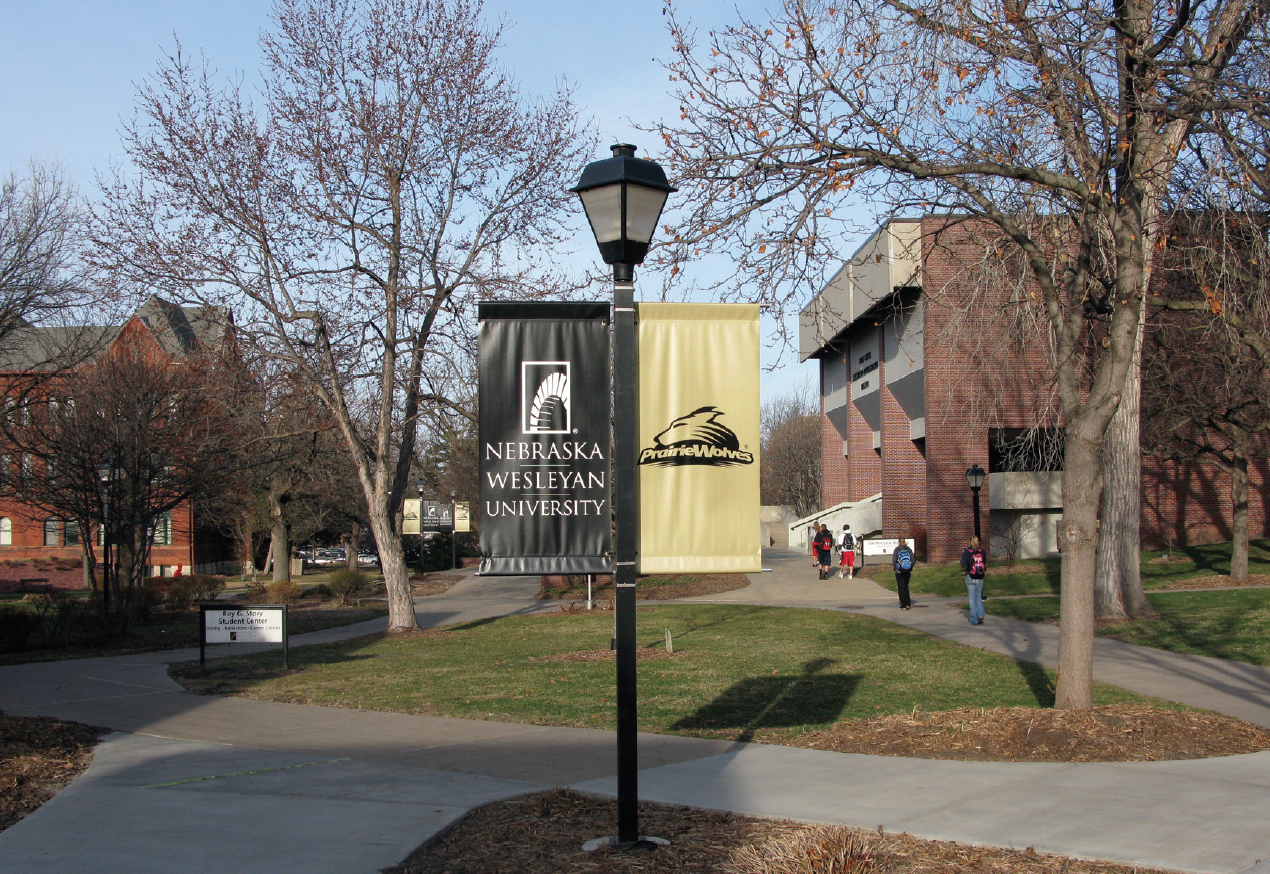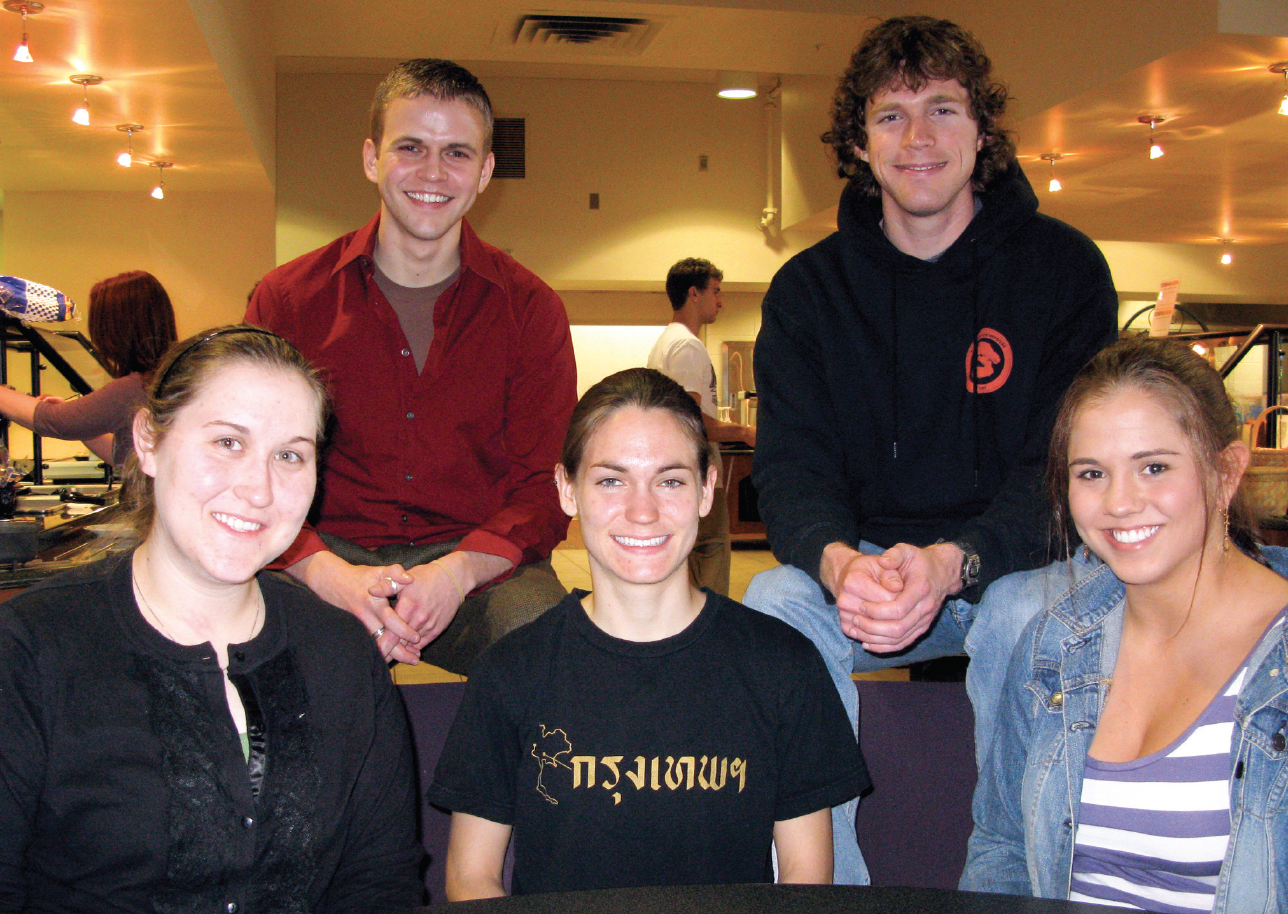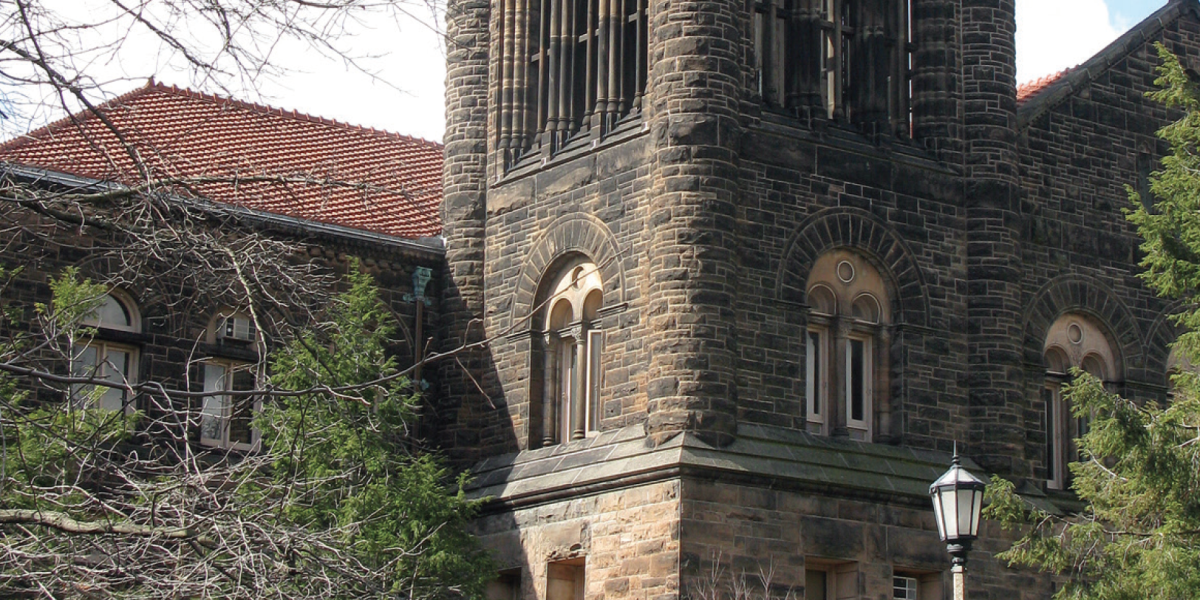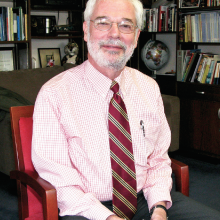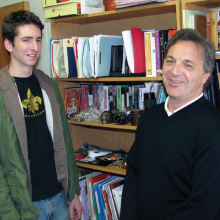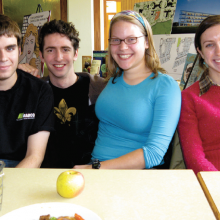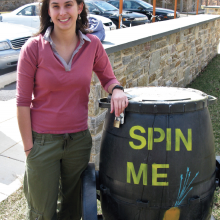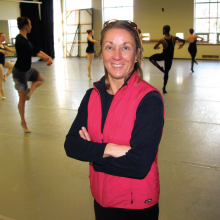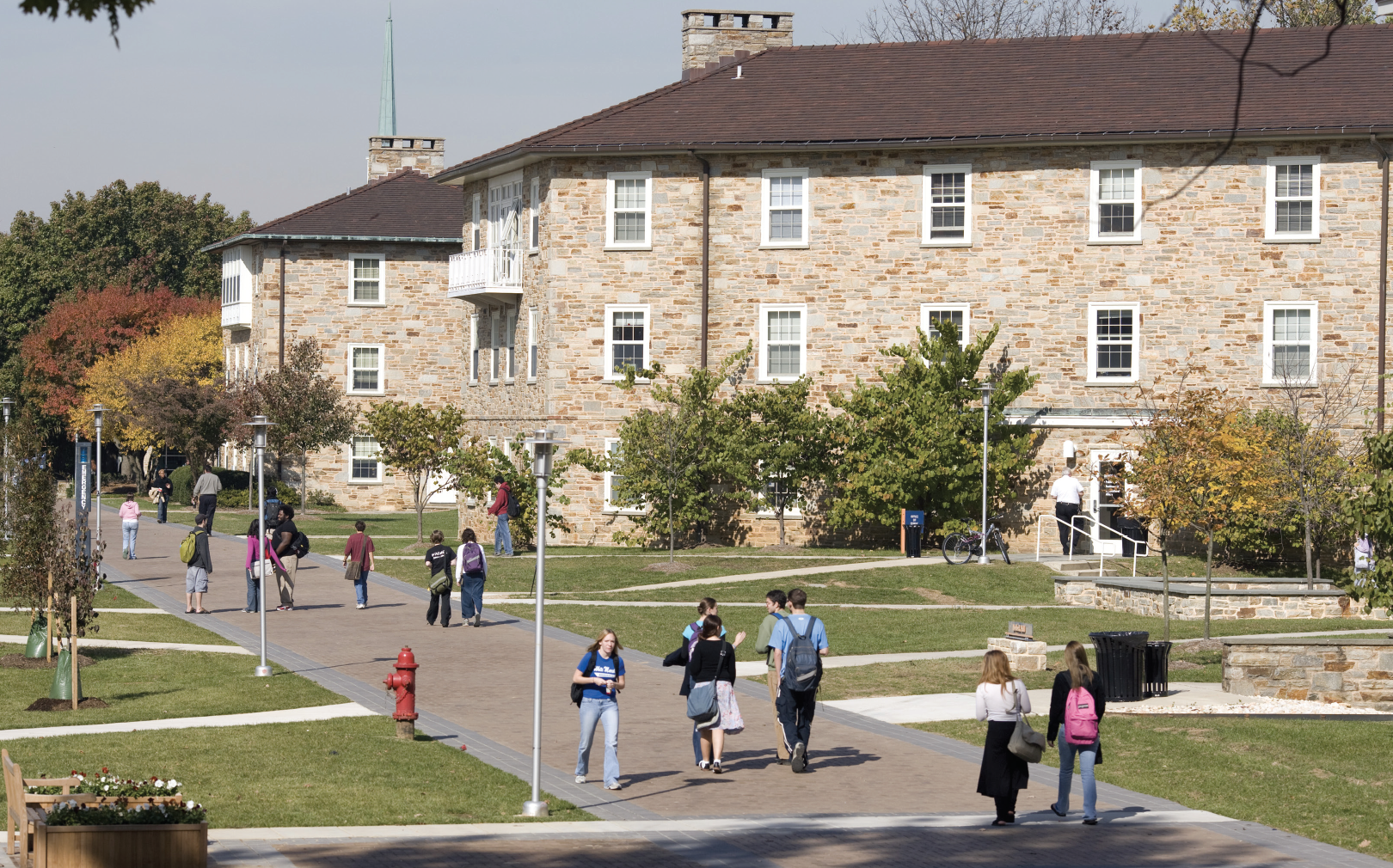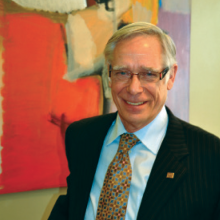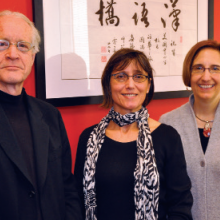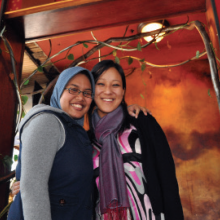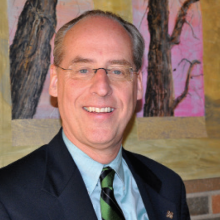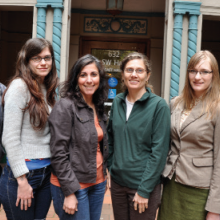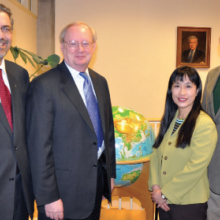2006 Comprehensive Michigan State University
How international is Michigan State University? Many U.S. campuses have close ties with a myriad of academic institutions in other lands. Michigan State University (MSU) actually helped build universities in Brazil, Colombia, Japan, Nigeria, and Pakistan. Almost every U.S. college and university today sends students to study abroad. No public university sends greater numbers than Michigan State—2,385 in 2004-2005. MSU students can choose from more than 200 programs in 60 countries and on every continent, including Antarctica. By graduation, 28 percent of the students have studied abroad. Today, it is not uncommon to find a dean or vice provost for international programs at major research universities. Michigan State created an Office of International Programs and appointed the first dean in 1956.
The nation’s land-grant pioneer—founded in 1855 as the Agricultural College of the State of Michigan, it was the model for the Morrill Act of 1862—now aspires to become what President Lou Anna Kimsey Simon calls the first “world grant” research university serving not only residents of Michigan’s 83 counties but people around the globe.
Internationalization As A Tool For Local Success
Michigan State’s passion for the international is all the more noteworthy considering the economic struggles that Michigan has endured with the decline of the U.S. auto industry. The percentage of the university’s revenues coming from taxpayers dropped from 52 percent in 1997 to 37 percent in 2006. With nearly 45,000 students and a deep commitment to affordability and accessibility, Michigan State has kept a tighter lid on tuition than any Big Ten campus. It absorbed $66 million in cuts in the past five years, although it is close to the finish line of a $1.2 billion fundraising drive that boosted endowment and created five dozen new faculty positions. Its tenure stream faculty remains below a peak in the 1980’s, but MSU’s leaders stress that the numbers now are growing once again.
Michigan State’s stature is inextricably bound to its international activities, beginning with development work across Africa, Asia, and Latin America in the 1950s and 1960s. Under legendary President John A. Hannah (1941–1969), it embraced a global mission even as its size and reputation burgeoned. It was the Michigan State College of Agriculture and Applied Sciences when Hannah succeeded his father-in-law as president; the red brick chimney of a furnace next to Spartan Stadium still bears the letters MSC. But it achieved university status in 1955 and became Michigan State University in 1964. Hannah led Michigan State into both the Big Ten and the Association of American Universities, the alliance of top research campuses. Later he ran the U.S. Agency for International Development (USAID). On the watch of Peter McPherson, Michigan State president from 1993 to 2004 and a former USAID administrator himself, the number of students studying abroad nearly tripled. McPherson, a banker and one-time Peace Corps volunteer who chaired the Commission on the Abraham Lincoln Study Abroad Fellowship Program and is currently president of the National Association of State Universities and LandGrant Colleges, aspired for 40 percent to study abroad.
Simon said that as she travels people often ask, “Aren’t you running into a lot of resistance in your state?”
“Quite the contrary,” she tells them. Surveys show that “the people of Michigan do understand the value of study abroad. They understand that we have to compete in a global economy, and Michigan State University must play an important role in that.” Michigan State has a special obligation as a public institution to translate advances in knowledge into improvements in people’s lives so they see the globalized economy not as “an instrument of despair,” Simon said, but as a path toward a brighter future.
At a sesquicentennial celebration on Sept. 8, 2005, Simon unveiled a strategic plan called “Boldness by Design” that set the goal of winning recognition as the world’s leading landgrant research university for the 21st century by 2012, the 150th anniversary of the Morrill Act. The university installed a 7-foot statue of Hannah outside the Administration Building that already bore his name, and a model of the Hannah statue is kept in the president’s conference room.
Simon designated Michigan State’s internationalization as the special focus of a self-study the university did for the 2005 reaccreditation review by the North Central Association of Colleges and Schools. A faculty team produced a 268-page report analyzing the university’s international strengths and weaknesses. “In the 20th century, MSU built its international reputation, in part, through its involvement in the creation of new universities and colleges around the globe and its development work, and most recently on our expansive study abroad programs,” the self study said. “MSU’s international engagement in the 21st century will be based on equal, transparent, and reciprocal partnerships with host-country institutions.”
The bottom line, said Provost and Vice President of Academic Affairs Kim A. Wilcox, is that “we have to be more purposeful about this.” Too often, added Wilcox, a developmental speech acoustics scientist, Michigan State’s international ties rested on “the whim of the faculty. If somebody resigns or retires or leaves, the research program goes away because it was just them and their buddy in Rwanda. That’s not a sustainable presence.”
MSU’s leaders say they won’t squelch faculty curiosity or entrepreneurship, but want to concentrate energy and resources on such institutional strengths as food, health and security, and environmental studies. “I understand how this fits and how to do it,” said Simon, whose Ph.D. is in higher education administration.
She wants to forge a closer bond between Michigan State’s area studies centers and international institutes that concentrate on thematic issues, from business and development to education, health, and agriculture. The university recently opened an office in Beijing to coordinate projects and activities and to serve as its eyes and ears in that part of the world, much as it has an office in Washington, DC.
Development Partner in Africa, Asia, and Latin America
Michigan State is no longer in the bricks-andmortar business of building universities overseas as it did with the University of the Ryukus in Okinawa, Japan, in 1951 or the University of Nigeria, Nsukka, in 1960. But it is still deeply involved in development work across Africa, Asia, and Latin America through such programs as the Partnership for Food Industry Development (PFID) and the Partnership to Enhance Agriculture in Rwanda through Linkages (PEARL).
Following in the footsteps of botanist William J. Beal, who in the 1870s created the first hybrid corn, MSU scientists are helping small farmers from Nicaragua to Mozambique learn modern techniques to bring fresh fruits and vegetables to big city markets. PEARL has helped Rwandan farmers turn their finest Arabica coffee beans into a brew sold in Starbucks and other upscale java shops. In China, MSU runs a joint degree program in turfgrass management—and hopes that Beijing will install Michigan State turfgrass in its Olympic stadium as Athens did for the 2004 Games. “With our turfgrass,” said College of Agriculture and Natural Resources Dean Jeffrey D. Armstrong, “the opening ceremony activities can go on above and below ground level, and 36 hours later you can have a real sod playing field in place.”
The Rwandan project—also nurtured by USAID dollars— “started with just one coffee washing station. Now there are nearly 50,” said Dan Clay, the director of the Institute of International Agriculture. “We can’t even come close to the demand.” Agronomist Tim Schilling of Texas A&M University is the incountry director of the work in Rwanda, and Michigan State and Texas A&M both have trained faculty from the Université Nationale du Rwanda and the Institut des Sciences Agronomiques du Rwanda. Clay was in Rwanda directing an earlier MSU food security project when the civil war erupted in 1994. He and his family were safely evacuated, but 800,000 Rwandans—mostly Tutsis and moderate Hutus—were slain by Hutu militias during the four-month bloodbath.
The staff of the Institute of International Agriculture has doubled in size to 40 and its external funding has quadrupled to $10 million a year since Clay became director in 2000. “At MSU, the definition of what a university does is broad enough to include the Rwanda PEARL coffee,” he said.
Putting knowledge to practical use is what land-grant colleges do best. Scores of faculty in the College of Agriculture and Natural Resources conduct research overseas, and 21 percent of its students study overseas.
Jeffrey M. Riedinger, acting dean of International Studies and Programs and director of the Center for Advanced Study of International Development, said, “Michigan farmers say, ‘Hey, the Chinese are wiping out our apple juice market. Why are you over there helping them?’ And what we’ve done is take groups of Michigan farmers and the Farm Bureau to China or Chile and other countries and show them, no, we’re learning as much from them about advanced techniques and technologies and varieties as any information we’re communicating to them. Some of this is going to come back to the state in more resistant tree stock, new varieties, or improved practices.”
The creation of biofuels is one area where individuals from the United States can learn from other countries, said Riedinger, who has worked with peasants in the Philippines and China on land rights issues. “Our faculty coming back from Brazil and India and China say colleagues there are way ahead of us in some key areas in biofuels. Our foreign colleagues think it’s madness that we would grow corn—a food crop—to produce fuels.”
Sherman Garnett, dean of James Madison College, Michigan State’s school for public policy majors, led the reaccreditation self-study on internationalization. He said, “Like any good place, we do a lot with little.” Garnett agrees that Michigan State must “be more strategic.”
In African studies, for instance, Michigan State faculty are involved in dozens of important projects across the continent. That is appropriate for individual faculty, said Garnett, but as an institution “we can’t have dozens of windows in a region and give them equal emphasis, time, and support.”
The African Studies Center, founded in 1960, offers instruction in up to 30 African languages, several rarely taught anywhere else in the United States. With 165 Africanists on the faculty, Michigan State produces more Ph.D.s on Africa than any other institution. No other university offers more study abroad opportunities in Africa (18). Michigan State, under then-President Clifton Wharton, in 1978 became the first U.S. university to divest holdings in companies with investments in South Africa in protest of apartheid. “We’re known as a pro-African place,” said David Wiley, director of the African Studies Center since 1977.
At Michigan State it is possible to “go to no less than 14 different departments across this campus and get briefed on food safety,” said Mary Anne Walker, managing director of the Office of International Development, an office created in 2000 to secure more funding for global research and service projects.
Michigan State not only has microbiologists and toxicologists working on food safety, but sociologists and behavioral specialists as well seeking better ways to communicate about risks. Walker, who previously managed USAID civil society projects in Croatia, said Michigan State has 112 collaborative projects in 55 developing countries, with offices in 11 countries.
It was this practical, applied side of knowledge that attracted Yong Zhao to the faculty. Zhao, born in a farm village in China’s Sichuan Province, is a University Distinguished Professor of Educational Psychology and founding director of the Center of Teaching & Technology and the U.S.-China Center for Research on Educational Excellence. Training to become an English teacher, he devoured psychology textbooks left behind at his college by American professors. He came to the United States for graduate work, mastered Web technology and online education, and sped through a Ph.D. program at the University of Illinois, Urbana-Champaign, in two years. He has won several multi million grants from federal agencies for research on technology in the classroom, as well as pilot experiments trying to bridge the best of Western and Eastern approaches to education. He helped set up computer club houses in middle schools across Michigan, and is overseeing bilingual classrooms in China and Michigan. “I believe in the idea of connecting to the needs of the people in education. A good scientist should be in the service of the community of the people,” said Zhao, who thinks the U.S. school reform movement worries too much about math and science scores and doesn’t appreciate how well U.S. schools foster creativity.
Zhao, who recently became an U.S. citizen, said, “The whole state of Michigan needs to open up. Globalization and internationalization are here to stay. …We have to change. Kids from Michigan are in competition with kids from India and China as much as they are with kids from New York or the state next door.”
Leading in Study Abroad Among Public Universities
Michigan State has made it possible for students in almost any major to study abroad. But Garnett, who spearheaded the MSU selfstudy on internationalization, said, “If you look at the map of where our students go and you look at the map of where our research and development work is, they don’t overlap as much as we’d like. We want to bring those closer together.”
June Pierce Youatt, senior associate provost for undergraduate education and dean of undergraduate studies, said, “We work hard to integrate study abroad into our academic programs so that there’s a convenient way to do it. It doesn’t impede their progress toward a degree; it doesn’t make them stay a semester longer to graduate.” The bulk of Michigan State students study abroad during the summer on short-term programs, many led by MSU faculty and most taught in English. While the university recommends that entering freshman have taken at least two years of another language, Michigan State has no university-wide language requirement for graduation. The College of Arts and Letters and some programs, including a new Global and Area Studies major, do require language study.
Kathleen Fairfax, director of the Office of Study Abroad, said that at professional meetings, she sometimes senses a chill in the air when talking with counterparts from other universities. “They complain to me, ‘We don’t want to do study abroad the way you’re doing it. We don’t believe in short-term programs,’” Fairfax said.
“They consider (summer programs) a lower level of study abroad.”
But then she encounters colleagues from other campuses “that want to be like us” and climb the Open Doors rankings, Fairfax added. Only New York University ranked ahead of Michigan State in the 2005 report produced by the Institute of International Education.
“We really feel the land-grant mission here at MSU. It permeates everything, including study abroad,” said Fairfax. “We want to make study abroad as accessible and affordable and open to as many students as possible, and we think everybody qualified to go should go.”
Fairfax said the growth of study abroad at MSU reflects “a real partnership” between her office and staff of 23 and the colleges and academic departments that sponsor the programs. “Basically we have two levels of marketing going on. My office does the university-wide marketing—we publish the catalog, place ads in the student newspaper, put on study abroad fairs, and provide information at freshman orientation. But the colleges do the actual recruiting for specific programs,” Fairfax said. “Sometimes we hit them first, and then they hear it in class from their college. Eventually they hear it from somebody—and they go.”
In 2003, Fairfax’s office inaugurated Freshman Seminars Abroad, a two-week program open to all new students. They take place over two weeks in late July and early August, and take students in groups with MSU professors to such destinations as Québec City, Canada; Cork and Dublin, Ireland; Cape Town, South Africa; and Hikone, Japan. There was also a spring break seminar to Mérida, Mexico, in March 2006. The students receive two credits. The costs ranged from $1,000 for the Mexico and Québec trips to $2,900 for South Africa.
Rebecca Kapler of South Lyon, Michigan, who went on the Ireland seminar, said, “It was an experience to do it before you got on campus. I wasn’t even 18.” She is certain that she’ll study abroad again during her years at MSU.
Half the students in MSU’s Honors College study abroad, lured in part by $70,000 worth of scholarships that the college awards in $500 and $1,000 increments. Ronald C. Fisher, dean of the Honors College and a professor of economics, said, “You can’t overestimate how important that experience is, even to honors students. We still have a lot of first-generation college students whose international experience (before coming to Michigan State) is often limited to Canada.”
Brian Forest, 21, a senior from Clinton Township, Michigan, double majoring in political science and Asian studies, used his nearly fluent Japanese as a guide at the 2005 World Exposition in Aichi, Japan, on an internship arranged through the Japan Center for Michigan Universities.
Forest, who switched to Japanese in high school after “running out of French classes,” said, “They do a really good job here of making it almost impossible not to study abroad. It’s hard to escape even if you wanted to. I got e-mails all the time from both the colleges I’m in promoting study abroad.”
Michigan State’s Office for International Students and Scholars (OISS) attends to the welfare of 3,300 international students, more than half from Korea, China, India, Taiwan, and Japan, and 1,200 visiting scholars. The 2,200 international graduate students comprise 40 percent of MSU’s graduate population, while the 1,000 international undergraduates are 3.3 percent of undergraduate enrollment. The Colleges of Business (638), Natural Science (574), Engineering (519), and Arts and Letters (418) enrolled the largest number of international students in fall 2005.
The OISS was an early adopter of new technology to speed the processing of student visas and forms for the Student and Exchange Visitor Information System (SEVIS).
Peter Briggs, director of OISS, called his office “a poster child for change. The technology allowed us to become so efficient we’ve been able to collapse a position and refocus on our connection to the community and our educational mission.”
Michigan State saw an overall decrease of 22 international students—0.7 percent—in fall 2005. Some had feared a much larger drop when the number of applications fell. Karen Klomparens, associate provost for graduate education and dean of the Graduate School, said, “I told my colleagues, ‘You need to look at who’s dropping off the application pool. It’s the bottom 25 percent, not the top.’”
The speed with which Briggs’ shop handled the paperwork for visas also helped, said Klomparens, a botanist and product of MSU. “We have the reputation of getting our paperwork out the door very quickly. We FedEx lots of stuff all over the globe to make sure it gets to international students. We’ve had students tell us that sometimes they decided to go to the first place that got them the forms they needed to apply for their visa because it showed that (the university) cared,” said Klomparens.
MSU CIBER’s global EDGE
Tomas M. Hult, director of Michigan State’s Center for International Business Education and Research (CIBER), deploys half of his staff of 30 on a single, monumental task: updating the thousands of links on Michigan State’s encyclopedic international business portal to the Web called globalEDGE™ at http://globaledge.msu.edu/ibrd. “If you type in ‘international business’ on any search engine, we will come up No. 1,” boasted Hult. The site gets 3.7 million page hits a month and offers resources from the complete CIA World Factbook to 45 online course modules about export regulations and licensing rules to up-to-the-minute news from around the world. “We’re one-stop shopping for everything you want to know about international business,” said Hult, a native of Sweden who earned his Ph.D. in marketing from the University of Memphis.
His office also hosts the Web hub for all 30 of the nation’s Title VI B-funded CIBERs. Hult and Irem Kiyak, associate director, even trot out a roulette wheel with flags from dozens of countries for prizes at study abroad fairs. The MSU CIBER was founded in 1990 by S. Tamer Cavusgil, a global international marketing scholar from Turkey who holds an endowed chair at the MSU Eli Broad School of Business and retains the title of executive director of the CIBER.
Learning Fluid Dynamics in Volgograd
The MSU College of Engineering sends 70 students for five weeks each summer to study in Volgograd, Russia; it is MSU’s largest study abroad program. The college also sends students on exchanges and other programs to England, France, Italy, Germany, and Australia. The classes in the non–English-speaking countries are taught by MSU faculty or local professors of engineering who speak English. “We wouldn’t have a market for courses not taught in English for our students. There’s just not enough language strength,” said Thomas F. Wolff, associate dean for undergraduate studies. “Inside the classroom, once you close the door, dynamics is dynamics. It’s the same all over the world,” he added.
Spartan engineers learn early how international their future profession has become. “Engineering probably has the most international faculty in the university. We have large numbers of professors from all over the world—India, China, Korea, and Eastern and Western Europe,” said Wolff, a civil engineer. “They are collaborating every day with colleagues all over the world.” With the United States producing 65,000 engineers a year and countries in Asia on a path to produce 1 million, the students understand that they will be operating in a world with intense competition.
“Routine, well-defined engineering work, such as doing stress analysis on a valve with three-D computer models, can easily be done by good engineers for a third of the price on the other side of the world and be back the next day,” said Wolff. “What the U.S. has been good at is integration and innovation. If you’re going to outsource a large part of your work, there have to be bright people at the top figuring out what to outsource, what to do with the results, and how you’re going to put all that together.”
Area Studies Centers
In addition to African Studies, Michigan State has area studies centers that concentrate on Asia, Canada, Latin America, Europe, and Russia. It operates several thematic institutes that work across regions and focus on agriculture, business, education, health, international development, and development issues that affect women. Even before the reaccreditation review, the university was seeking better coordination of their activities.
Michael Lewis, director of the Asian Studies Center, said MSU teaches a full range of Asian languages, including three years of Korean and two years of Hindi and Vietnamese. It offered instruction in Khmer, the language of Cambodia, in fall 2006 for the first time. “We’re growing like crazy in language and other center initiatives,” said Lewis, an East Asian historian.
Michigan State’s national resource centers secured a federal grant and funding from thenProvost Simon in 2002 to launch the “e-LCTL Initiative” under which Title VI centers in 120 universities work together to coordinate which less commonly taught languages they teach.
“It’s a boom period for the Less Commonly Taught Languages (LCTL),” said David K. Prestel, chair of Linguistics and Germanic, Slavic, Asian and African Languages. Margo Glew, coordinator of the LCTL Program, said, “We’ve nearly doubled the number of languages available for instruction at MSU.”
Still, champions of international education at Michigan State want to see the university do more on this front. Jenny Bond, acting assistant dean of international studies and programs and an emerita professor of human nutrition, said the next frontier for MSU“is more foreign language” and finding ways to further internationalize the education of students who do not study abroad. It is a task made easier by an unusual spirit of collaboration on the East Lansing campus, said Bond. “That’s the real secret (to MSU’s internationalization). There are just no boundaries.”
Dawn Pysarchik, associate dean of international studies and programs, said the provost had provided $100,000 to revitalize a program called Internationalizing Student Life. The program dates back to 1990, but had flagged in recent years because “it was not connected to the academic side of the institution,” said Pysarchik, a professor in the College of Communication Arts and Sciences. “It was food, fun, and festivals. We discovered it couldn’t be just that. It has to have roots in the academic part of students’ careers as well as their cocurricular lives.”
MSU’s emphasis on international activities is strongly supported by the eight-member, elected Board of Trustees. Board chairman David Porteous said that in President Hannah’s day, “I’m sure many people felt he was pushing the envelope too far, but he turned a small, regional school into a great research university, and the international dimension was a critical component of that.”
Porteous, an attorney from Reed City, Michigan, credits McPherson and Simon with building on Hannah’s legacy. “I’m very proud that with all the challenges we have economically here in the state of Michigan—some of the toughest in the history of the state—our university is not turning inward and putting walls up; we’re doing just the opposite,” said Porteous, who sang in the Russian choir during his college days.
Michigan State elevated John K. Hudzik, dean of international studies and programs from 1995 to 2004, to vice president for global engagement and strategic projects. Provost Wilcox described Hudzik’s job as “masterminding intellectual capital on thinking about the world in the same way we thought about” plant science and veterinary medicine in the past.
Hudzik, a political scientist, said, “We need collaborators and partners. We can’t afford to do everything on our own.” Hudzik and Wilcox led an MSU delegation to leading Thai universities last January. “Our partners abroad are world-class institutions. There was a time when some did not think of them in that way, but they certainly are now,” said Hudzik.Wilcox said that in meeting with Thai academics, he was struck by the similarity of the challenges they face, including improving higher education, meeting environmental challenges, and responding to the threat of avian influenza.
“Thailand does not need from us people who’ve studied Thailand their whole lives. They’ve got lots of people who understand Thailand already,” said Wilcox, who is also a product of MSU’s Honors College. Likewise, “our Chinese partners aren’t looking for Chinese culture experts from us. They want engineers, they want physicians, they want plant scientists and water scientists.”
In a February 2005 speech marking Michigan State’s sesquicentennial, President Simon asked rhetorically, “Who would have imagined 150 years ago that an experiment that began with a tiny class in a rough-hewn building carved out of a forest … would become the global prototype of a genuinely American brand of higher education—one that is an engine of the economy, a force for the democratization of public learning, the model for engagement with the world beyond the campus, and a catalyst for improving the quality of life in Michigan and around the world?”
Simon added, “Just as the establishment of the Agricultural College of the State of Michigan gave impetus to the work of Justin Morrill to create the land-grant system to prepare for the 20th century, let us work together to create … the next bold experiment: the land-grant university for the world.”

